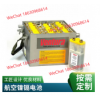U.S. companies engaged in international trade should be alert to the legal issues unique to the international context. This article is intended to raise your awareness of some of the legal issues encountered in international trade.
Exporting
Exporting (shipping products outside the United States) is normally easy and subject to few restrictions. Most exports of ordinary trade goods to friendly countries are made under a so-called "general license". There are, however, export restrictions you need to be aware of:
Some products (notably products that have military uses) are subject to export restrictions. Note that some products have "dual-use" applications, i.e., may be used for both civilian and military purposes. When in doubt seek advice as to whether your product may require a special export license, or may be unable to be exported.
Exports to some countries may be restricted. The Bureau of Industry and Security of the U.S. Department of Commerce has a website listing countries affected by export restrictions ("Where are you Exporting" at http://www.bis.doc.gov/licensing/exportingbasics.htm). Note that you may violate export restrictions by selling a product to a buyer that you know, or should know, intends to re-export the product to a country to which direct exports from the U.S. are prohibited.
Export sales to some purchasers may be restricted. You should consult the "do not sell" lists maintained by the Bureau of Industry and Security of the U.S. Department of Commerce ("Who Will Receive Your Item" at http://www.bis.doc.gov/licensing/exportingbasics.htm) and by the Office of Foreign Assets Control of the United States Treasury Department (http://www.treas.gov/offices/enforcement/ofac/sdn/index.shtml). Under U.S. law you have an affirmative obligation to "know your customer," including the ultimate buyer if your customer re-exports the products. You will not be able to plead ignorance if your Canadian customer sells your products to the Cuban military and you knew or should have known that this was your customer's intention.
Freight-Forwarders. When exporting products it will be helpful to develop a relationship with a reputable freight-forwarder who can help ensure that your company complies with the laws and regulations governing exports. Information on freight-forwarders may be found at http://www.export.gov/logistics/exp_whatis_freight_forwarder.asp.
Deemed Exports. It is possible to make a prohibited export of technology without knowing you are doing so. Technology whose export is restricted may be "imbedded" in your product's controls. And you may be "deemed" to export technology merely by giving individuals from a foreign country access, in the United States, to that technology sufficient to enable those individuals to take that technology back home with them.
importing
importing (bringing goods into the United States) is also subject to restrictions as well as to special taxes known as "duties" (set forth in a "tariff" schedule). It will be helpful to develop a relationship with a reputable customs broker for advice and assistance when importing goods into the U.S. The customs broker can help you determine whether and what duties are applicable to the goods you are importing. Four factors play a role in the calculation of duties: classification under the Harmonized Tariff Schedule of the United States; the product's country of origin; status of entry (for example, products imported into a foreign trade zone may have lower or no duties); and product value.
imports from some countries may be restricted (e.g., goods from Cuba are generally banned from entry into the U.S.). Additionally, quotas may limit imports of products of certain categories, such as textiles. For more information on imports, visit http://www.cbp.gov/xp/cgov/trade/trade_programs/textiles_and_quotas/guide_import_goods/, a website maintained by the U.S. Department of Homeland Security.
U.S. import laws require many imported products, if being resold in the United States as is or with minimal change, to be marked to show the country of origin. Failure to comply with "country of origin" marking requirements can be very expensive.
Contracts for the Sale or Purchase of Goods
The following issues, among others, should be considered in international contracts for the sale or purchase of goods:
Payment. Exporters should protect themselves against the risk of non-payment by the foreign buyer because of the difficulty of collection in a foreign land. Letters of credit are frequently used as a payment mechanism because they give the seller confidence that a reputable financial institution is standing behind the buyer's payment obligation. Under a letter of credit, the seller is paid, usually by a U.S. confirming bank, upon furnishing the bank with specific documentation, normally including an invoice and shipping documents. Note that special rules apply to letters of credit. Among other things, you should take great care to ensure that the documents you present accurately and completely meet the terms of the letter of credit; even minor defects can delay or prevent payment.
Currency. Most U.S. sellers price their products in dollars. If the customer requires pricing in another currency, then the contract should deal with the issue of the risk of currency fluctuations.
CISG. Most of the major developed countries have ratified the U.N. Convention on Contracts for the International Sale of Goods (CISG). Under the Convention, its terms will automatically become a part of transnational contracts for the sale of goods unless the parties expressly provide otherwise.
INCOTERMS. The International Chamber of Commerce (ICC) has developed shorthand trade terms (called INCOTERMS) that operate to (1) assign risk among the parties (and therefore the responsibility to obtain insurance against loss in transit) and (2) identify which party is responsible for the various stages of shipment and delivery and for export/import clearance. The ICC has published an inexpensive guide to INCOTERMS titled "ICC Guide to INCOTERMS 2000" which you will find a very useful resource. If you want INCOTERMS to apply you should note "(INCOTERMS 2000)" immediately after the applicable trade term. Be aware that certain terms commonly used in the U.S. (such as "FOB") are also used by INCOTERMS, but have different meanings.
Dispute Resolution. Every agreement for the sale or purchase of goods, but especially agreements dealing with transnational transactions, should prescribe how disputes will be handled: whether by arbitration or court proceeding; what law will govern; and where the arbitration or court proceeding will take place. Before dismissing such provisions as mere boilerplate, bear in mind the burden that may be imposed by a foreign language trial in a distant continent under unfamiliar law before a judge from your customer's home country.
If your contract for the sale or purchase of goods is made by use of a standard form of quotation, purchase order, or acceptance, the terms and conditions of sale or purchase printed on that form should be reviewed in light of the foregoing.
Traps for the Unwary
Companies often find it desirable to engage distributors or sale representatives in foreign countries. You should be aware that many countries have laws that protect distributors and/or sales representatives from termination without specifically defined cause, or from other conduct that the country feels to be overreaching. All such arrangements should be in writing, and you should seek legal advice before entering into any distributorship or sales representation agreement, especially one that has minimum inventory requirements, broad or no-cause termination rights, and restrictions on where and how your products can be sold.
You also need to be aware of the provisions of the U.S. Foreign Corrupt Practices Act (FCPA). The FCPA prohibits the payment by U.S. companies and their employees and agents of "anything of value" to foreign governmental or political officials for the purpose or goal of achieving an unfair commercial advantage. In some countries such payments may be expected as a matter of course; nonetheless, if made by a U.S. company they may violate the FCPA and result in fines and other criminal penalties.
Certain countries have passed laws aimed at boycotting and isolating Israel. These provisions may be included in the fine print of purchase orders or order acknowledgment forms, standard terms of sale or purchase, or written or electronic communications. U.S. companies and individuals are subject to penalties if they aid or assist in the implementation of this boycott. Be aware that seemingly innocent activities, such as identifying your suppliers, may constitute aid to an unsanctioned boycott. If you have received requests to comply with or otherwise aid an unsanctioned boycott you must file a report with the Office of Antiboycott Compliance of the Department of Commerce.
Joint Ventures and Direct Investment
A growing number of companies that engage in international trade eventually determine that it is desirable either to establish their own operations overseas or to enter into long-term relationships with one or more foreign firms for the purpose of acquiring greater control over the sourcing or sale of products or services. Overseas investment may take the form of a joint venture relationship, a foreign subsidiary, or licensing arrangements. There are complex tax, legal, and business issues that should be addressed when planning any such activity. For example, companies with foreign subsidiaries or joint ventures must (1) appropriately document transactions among related entities and (2) ensure the proper allocation of expenses, risks, and responsibilities. This is necessary, among other reasons, in order to comply transfer pricing rules that most countries have established in order to prevent companies from shifting profits from higher-tax to lower-tax jurisdictions by means of inter-corporate pricing.
Before investing abroad, you should engage professional advisors (in particular, attorneys and accountants) in the U.S. and in the country in which the investment is being made. These advisors will be able to give you guidance as you investigate your potential foreign partner and determine the structure of your investment.
The information in this article is intended only to alert readers in a general way to some of the legal issues encountered in the course of conducting international trade. It is not legal advice on which readers can rely for any purpose. Likewise, it is not intended to be comprehensive. The application of the laws and regulations noted in this article is specific to individual facts and circumstances. Readers should seek the advice of legal counsel as to specific issues or transactions.
1233119-6







